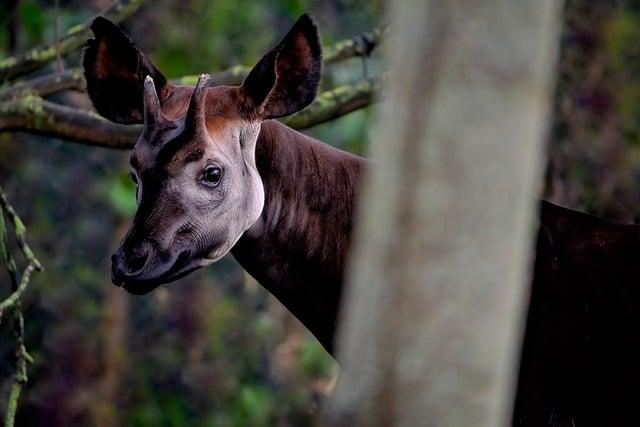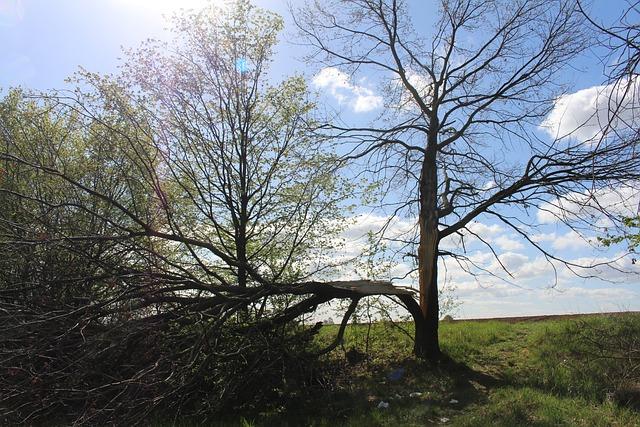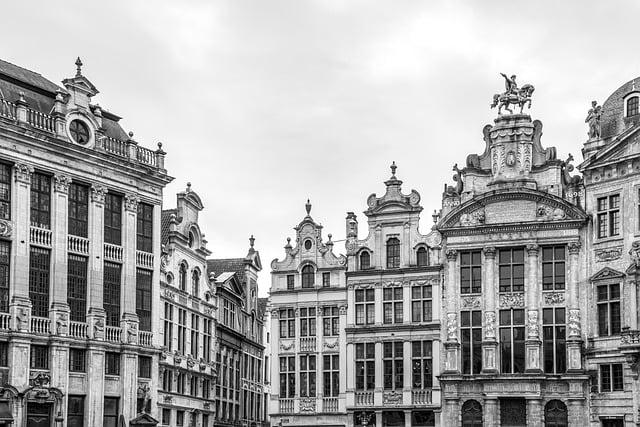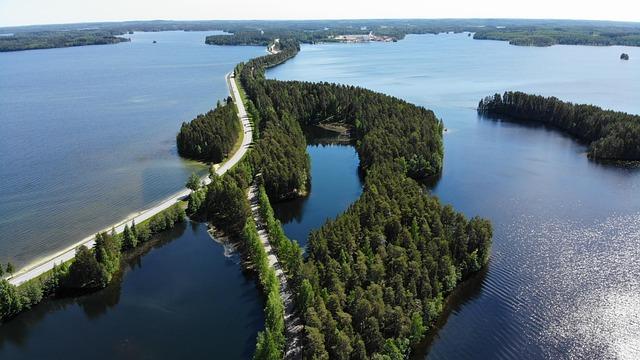In a dramatic turn of events during the recent African Union (AU) Summit,tensions escalated as Rwandan President Paul Kagame expressed his frustration over the absence of the Congolese delegation.The incident, which has sparked widespread discussion among regional leaders and analysts, reflects the underlying tensions between Rwanda and the Democratic Republic of Congo (DRC). As Kagame’s anger underscored the fragility of diplomatic relations in the region, the blockade of the Congolese team raised critical questions about cooperation and dialogue at a time when Africa faces pressing challenges that demand unity and collaboration. This article delves into the implications of this incident for AU dynamics, regional stability, and the ongoing dialogue between the two nations, providing a nuanced analysis of the current geopolitical landscape in East Africa.
Kagame’s Frustration: A Deep Dive into the Rwandan Leader’s Reaction at the AU Summit
During the recent African Union (AU) Summit, Rwandan President Paul Kagame’s visible frustration highlighted the escalating tensions between Rwanda and the Democratic Republic of the Congo (DRC). Kagame’s demeanor,characterized by sharp remarks and a palpable sense of irritation,reflected the ongoing disputes over issues such as cross-border militancy and territorial integrity. The blocking of the Congolese delegation,presumably at the behest of Rwandan authorities,underscored the fraught relationship and raised questions about the AU’s ability to mediate between the two nations. Observers noted that Kagame’s outbursts were not merely personal; they spoke to broader frustrations regarding national sovereignty and regional security dynamics across the Great lakes region.
The summit showcased a stark divide in the perspectives of Rwanda and the DRC, with Kagame and congolese representatives at odds. Among the key points of contention were:
- Military Interventions: Long-standing allegations regarding Rwandan support for rebel groups within the DRC.
- Resource Exploitation: Disputes over natural resources fueling economic grievances.
- Refugee Crisis: An influx of displaced persons complicating bilateral relations.
Such themes have become stalwarts in the dialogue—or, rather, the lack thereof—between the two nations. The blocked delegation exemplified a refusal to engage with what Kigali perceives as a threat to its sovereignty, reinforcing Kagame’s position on prioritizing Rwandan security above diplomatic decorum. As the AU navigates these prickly issues, the onus remains on its leaders to foster dialogue rather than division amid escalating rivalries.
Congolese Delegation Denied Access: Implications for Regional Diplomacy

The recent denial of access to the Congolese delegation at the AU Summit has ignited significant tensions within the region, placing a spotlight on ongoing diplomatic frictions. This unprecedented incident raises critical questions regarding the state of multilateral relations in Africa,notably amid rising geopolitical conflicts. Diplomatic channels that were onc viewed as avenues for cooperation now seem fraught with mistrust and hostility. The fallout from this incident emphasizes a pressing need for dialogue and compromise, as it not only affects bilateral relations between the Democratic Republic of the Congo (DRC) and host nations but also has ripple effects on broader regional stability.
In analyzing the implications of this diplomatic standoff, several key points emerge:
- Regional Alliances: The incident may reshape existing alliances and encourage countries to realign based on perceived threats.
- Conflict Resolution: With ongoing tensions within the Great Lakes region, access denial coudl hinder peace negotiations and conflict resolution efforts.
- International Perception: The AU’s handling of this situation will influence how international observers view governance and diplomacy in Africa.
Moreover, diplomatic rifts like this create significant hurdles in addressing pressing issues such as economic progress and security, signaling a potential regression in collaborative progress across the continent.
Tensions Escalate: Understanding the Root Causes of the Kagame-Congo Rift

The ongoing discord between Rwanda and the Democratic Republic of the Congo (DRC) is deeply entrenched, with a complex history that fuels current hostilities. Factors contributing to the escalating tensions include:
- Historical grievances: Decades of conflict in the region, particularly during the second Congo War, have left lingering resentment on both sides.
- Resource competition: The DRC is rich in natural resources,leading to disputes over control and exploitation that often involve Rwandan interests.
- Security concerns: Rwanda’s involvement in DRC’s eastern regions is often justified by claims of combating rebel groups that threaten its national security, a rationale challenged by Congolese authorities.
- Political instability: Changes in leadership and governance in both nations exacerbate existing tensions, as each side looks to consolidate power while suppressing dissent.
Recent developments have underscored these issues, particularly during high-stakes forums like the African Union Summit. The diplomatic fallout has manifested in several ways, including an increasingly antagonistic rhetoric from both nations:
| Event | Description |
|---|---|
| Blocked Delegations | The DRC delegation was reportedly barred from participating fully in discussions, exacerbating diplomatic tensions. |
| Kagame’s Response | Rwandan President Kagame expressed frustration at what he perceives as unjust criticisms from DRC officials. |
Recommendations for Constructive Dialogue: Steps Toward Peaceful Resolutions

In navigating the complexities of international relations, particularly within the African context, fostering a culture of constructive dialogue is paramount. Key steps include:
- Establishing Open Channels: Encouraging regular communication between delegations to build trust and understanding.
- Inclusive Dialogue Platforms: Creating venues where all relevant stakeholders can voice their perspectives without fear of retribution.
- Facilitated Mediation: Engaging neutral parties to mediate discussions, ensuring unbiased support in resolving disputes.
Furthermore, it is essential to focus on mutual interests and shared goals. emphasizing cooperation over conflict can definitely help pave the way for enduring solutions. Consider implementing:
| Strategy | Description |
|---|---|
| Joint Initiatives | Collaborative programs tackling shared challenges, such as trade or security concerns. |
| Regular Summits | Periodic gatherings to assess progress and reinforce commitments to diplomatic efforts. |
| Public Awareness Campaigns | Educational initiatives aimed at promoting peace and reconciliation among broader communities. |
The Role of the African Union: strengthening Mediation Efforts in Regional Conflicts

The African Union (AU) has been increasingly pivotal in mediating conflicts across the continent,demonstrating a commitment to stability and peace through active engagement and diplomatic channels.Recent events at the AU summit highlight the complexities involved in handling regional disputes, particularly with actors such as Rwanda and the Democratic Republic of the Congo (DRC) finding themselves at odds. During the summit, tensions escalated as Rwandan President Paul kagame expressed his frustration over the lack of progress in addressing security challenges in the DRC, while the congolese delegation faced obstacles in participating fully in the discussions. This friction underscores the challenges the AU faces in attempting to facilitate dialogue and reconciliation among member states with conflicting interests.
In response to the current situation,the AU is urged to enhance its mediation strategies,focusing on several key areas:
- Strengthening Communication: Improving channels of communication between conflicting nations to foster understanding.
- Increased Neutrality: Ensuring that mediation teams remain impartial and dedicated solely to conflict resolution.
- Engagement of Local Stakeholders: Involving civil society and grassroots organizations to gain a comprehensive viewpoint on conflicts.
- Resource Allocation: Providing adequate resources and personnel for mediation efforts to ensure effectiveness.
With such strategic improvements, the AU can build on its existing framework for conflict mediation and enhance its impact on safeguarding peace and stability in the region.
Future Prospects: Building Lasting Cooperation Amidst Political Strife in the Great Lakes Region

The recent AU Summit has cast a spotlight on the fragile dynamics of cooperation in the great Lakes Region, showcasing how political tensions can disrupt diplomatic engagement. The reported incident of the congolese delegation being blocked not only highlights the underlying grievances but also emphasizes the need for a reevaluation of engagement strategies among the nations involved. In the wake of Kagame’s visibly simmering anger, discussions around conflict resolution and sustainable partnerships must be prioritized to navigate the turbulent political landscape. Stakeholders must consider approaches that foster dialogue, trust, and mutual respect, especially given the historical complexities of inter-state relations in this region.
to build a more collaborative future, it is crucial for leaders to focus on crafting frameworks that transcend immediate political strife. Initiatives could include:
- Regular Dialogue Platforms: Establish multilateral forums that encourage open discussions among regional leaders.
- Joint Economic Projects: Initiate development initiatives that require collaborative input,thereby fostering interdependence.
- Conflict Resolution Mechanisms: Implement frameworks for addressing grievances before they escalate into confrontations.
Moreover, implementing a structured approach to regional security and development cooperation could lead to more robust relationships. A proposed framework might involve a commitment to non-aggression, economic integration, and cultural exchange programs that affirm shared identities and values across borders. By prioritizing these initiatives, the nations of the Great Lakes Region can lay the groundwork for enduring peace and collaboration amidst political uncertainties.
Insights and Conclusions
the recent AU Summit has highlighted the complex and often contentious nature of regional diplomacy in Africa. President Paul Kagame’s visible frustration underscores the deep-seated tensions that persist within the Great lakes region, particularly concerning issues of sovereignty and security. The blocking of the Congolese delegation further complicates an already fraught political landscape, raising questions about the effectiveness of the African Union in mediating conflicts among member states. As leaders reflect on the outcomes and discussions from this summit, the need for constructive dialogue and cooperation will be crucial in addressing the underlying issues that threaten stability and unity in the region. the path forward remains uncertain, but it is clear that stakeholders must prioritize engagement over discord to foster a more peaceful and prosperous Africa.







